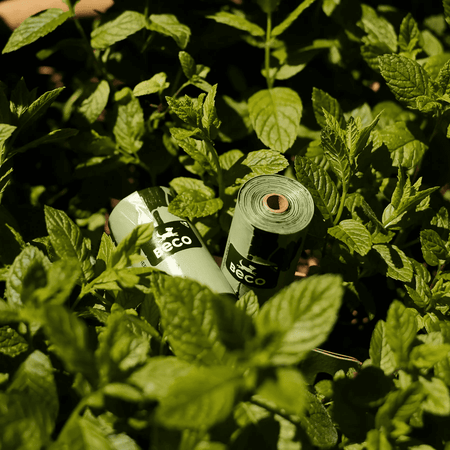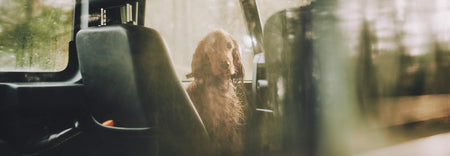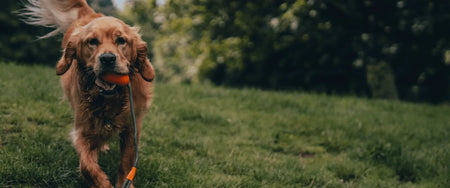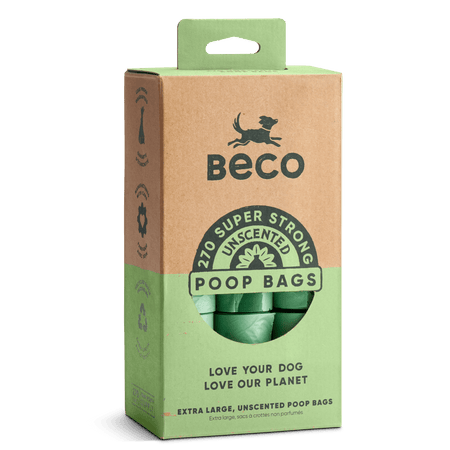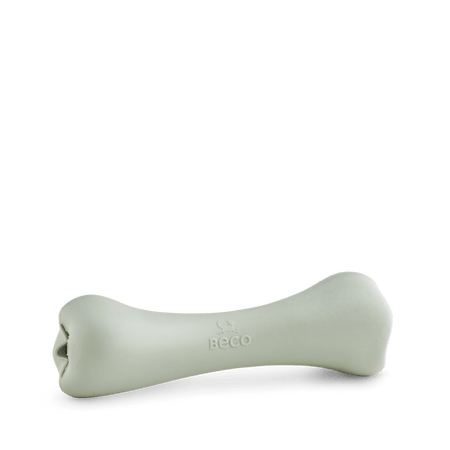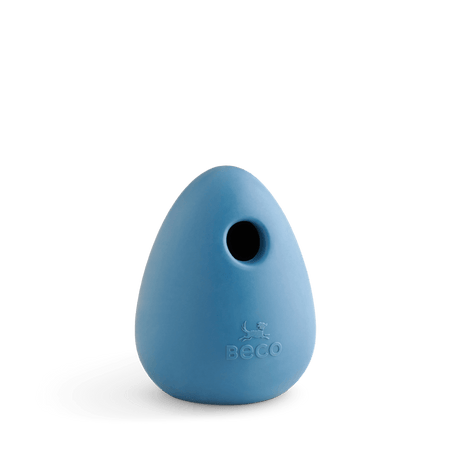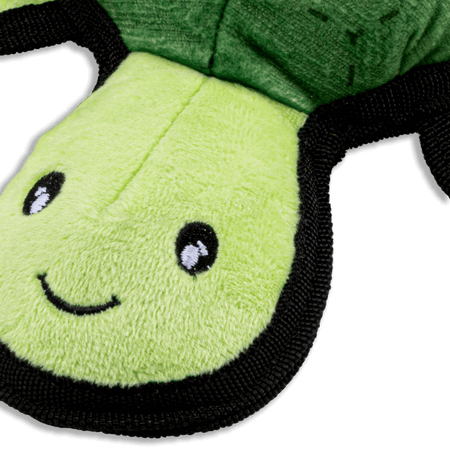It’s not exactly the memory you want to leave behind – your dog doing their business on someone else’s living room rug.
Whether it’s happened once or more than you'd like to admit, it can feel frustrating, awkward, and a bit baffling.
Why does it happen in other people’s houses but not your own? We’ll break down the possible causes and what you can do to prevent it.
- Stress and anxiety in unfamiliar environments trigger physiological gut responses.
- Dogs don't automatically apply house training rules to new locations.
- Scent marking from other pets can confuse visiting dogs.
- Supervised visits with consistent routines prevent most accidents.
What’s Actually Going On?
When your dog poops in someone else’s home, it’s rarely just a house-training issue.
Instead, it’s usually a combination of stress, unfamiliar routines, and confusion about where it’s acceptable to go.
Here are the main culprits:
1. Stress and Anxiety in Unfamiliar Environments
New places can be overwhelming. Unfamiliar smells, sights, and sounds may trigger anxiety, and just like in humans, anxiety affects a dog’s gut.
This is often referred to as “anxiety poop” and is a physiological response.
Elevated stress hormones (like cortisol) affect the gut-brain axis, speeding up digestion and causing urgency.
Symptoms of anxiety-related elimination might include:
-
Loose stools
-
Panting or pacing
-
Restlessness
-
Difficulty focusing or responding to cues
Even dogs that are otherwise well-trained may struggle to "hold it" when their nervous system is in overdrive.
2. Incomplete Generalisation of House Training
Dogs are contextual learners. Just because your dog knows not to go indoors at home doesn’t necessarily mean they understand the same applies elsewhere.
This is known as poor generalisation. Unless a dog has been deliberately taught that the same rules apply in new environments, they may not make that connection.
3. Scent Marking
In homes with other pets, your dog might interpret the unfamiliar smells as an invitation (or a challenge). Dogs communicate through scent, and defecation (alongside urination) can be a form of territorial marking.
This doesn’t always mean dominance. It could simply be your dog’s way of saying: “I was here.”
4. Changes in Routine
Disruptions to a dog’s schedule, especially their feeding and bathroom breaks, can throw off their natural rhythms.
If your dog normally poops at 8am and you’re still stuck in traffic at that time, they may not be able to hold it until they’ve properly adjusted.
Could It Be A Medical Issue?
It’s important not to rule out health conditions, especially if the behaviour is new or out of character.
Possible medical causes include:
-
Gastrointestinal infections or parasites
-
Food intolerances or sudden diet changes
-
Colitis or inflammatory bowel disease
-
Fecal incontinence (especially in older dogs)
-
Stress colitis, which is common when dogs travel or visit new places
If your dog consistently has loose stools, urgency, or frequent accidents, it’s worth speaking to your vet.
Behavioural issues and health problems often overlap, and eliminating one possibility helps narrow down the root cause.
How to Prevent Accidents in Other People’s Homes
If this behaviour is causing stress or social tension, you’re not stuck. Here's a practical approach grounded in behaviour management:
1. Reinforce Training in New Environments
Help your dog connect the dots: outside means outside everywhere. When visiting a new place:
-
Immediately take them outside to eliminate on arrival
-
Use the same cue words they’re used to at home
-
Reward them generously for going in the right place
-
Repeat every couple of hours or after meals
This consistent reinforcement teaches your dog that toileting rules apply beyond your garden.
2. Adjust Feeding and Bathroom Timing
Plan ahead before social visits:
-
Feed your dog at least 3–4 hours before arriving
-
Limit water about 2 hours before (unless it’s hot or they’re exercising)
-
Allow for a pre-visit walk or potty break
This helps reduce the chance of a sudden urge catching them off guard indoors.
3. Supervise and Restrict Access Indoors
When you arrive:
-
Keep your dog on a lead indoors or use baby gates
-
Avoid letting them wander unsupervised into carpeted areas
-
Bring a crate or pen if you’ll be busy or distracted
Most accidents happen when dogs are left to explore unsupervised, especially in rooms where other pets have spent time.
4. Bring Familiar Items
Dogs find comfort in the familiar. Bring:
-
Their bed or blanket
-
Favourite toy or chew
-
Travel crate if they’re crate-trained
This helps lower their stress and reinforces a sense of routine in a new place.
5. Clean Accidents Thoroughly
If an accident does happen, clean the area immediately with a pet-safe enzymatic cleaner, not an ammonia-based product, which can smell like urine and encourage repeat marking.
Supporting Dogs With Anxiety or Sensitivities
Some dogs, particularly those with sensitive temperaments, will need more support.
Try:
-
Shorter visits to begin with
-
Calming aids, such as pheromone sprays or anxiety wraps
-
Practising visits to neutral locations before entering someone’s home
-
Consulting a behaviourist for structured desensitisation training
Frequently Asked Questions
Is it rude to bring my dog to someone’s house if they’ve had accidents in the past?
Not necessarily, but it’s best to be upfront with your host. Let them know you’ll be supervising closely, taking your dog out regularly, and bringing supplies just in case.
Should I cancel social visits until my dog stops having indoor accidents?
You don’t need to cancel, but shorter, well-managed visits can help. Use them as training opportunities to reinforce good habits in new settings.
Can the flooring or layout of a home affect my dog’s behaviour?
Yes, some dogs may mistake soft surfaces like rugs for grass, especially in unfamiliar spaces. Slippery floors can also increase anxiety, making accidents more likely.
Do puppies grow out of this behaviour on their own?
Not always. Puppies need consistent reinforcement in multiple environments to properly generalise their training – time alone won’t solve the issue.
Conclusion
Sometimes, even well-trained dogs struggle when they’re in unfamiliar places – and pooping in someone else’s house is more common than you might think.
It often comes down to stress, changes in routine, or confusion about where it’s okay to go. If medical issues are ruled out, the best approach is to manage visits thoughtfully: supervise closely, stick to a consistent schedule, and reinforce training in each new setting.
With time and patience, most dogs get the hang of it.
If you’re preparing for a visit, our home-compostable poop bags make clean-ups quick and discreet, and our durable toys can help ease anxiety by giving your dog something familiar to focus on. Shop our essentials to help make visits smoother for both of you.
